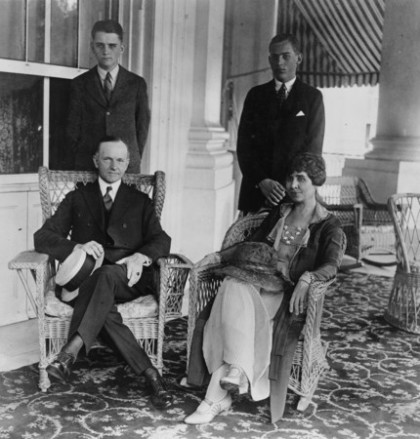It has always been easier to criticize and find fault than to contribute toward and respect the constructive ideal. Optimists, always the creators, have to work not only to realize what previously seemed impossible but they also have to overcome the destructive habits of the pessimists. Those pessimists are the first to surrender in the face of difficulty while they trumpet the message of hopelessness. “Nor is it worth trying,” these closet nihilists aver. Failure to measure up to certain expectations is enough for some to give up entirely on a project and declare defeat for the cause. America is no different. It has always had a healthy share of pessimists and other weak-willed “experts” who knew it would fail in this or that endeavor. The purpose of America, as Coolidge would reiterate, remains valid. It has raised for all the world to see a set of truths that preserve liberty with duty in a way that no set of principles has before, or can surpass. The failure to eradicate all the failings and frailties inherent in human nature is no more proof of failure than evidence of any grander success by empowering government now to accomplish it for us. For these “armchair” critics, it discredits the entire foundation and persuades them that progress means abandoning moral clarity, surrendering confidence in self-government entirely and trusting in our modernity to move past the “old” and “inadequate” concepts of an “ignorant” and “limited” eighteenth century existence. It would be one thing to adopt so foolhardy and naively defeatist outlook for oneself. These self-proclaimed skeptics are imparting this to the next generation, however, through “modern education.” To this issue of education, Coolidge turned in June of 1922, when he said,
“This is the civilization which intelligence has created and which sacrificed has redeemed. We did not make it. It is our duty to serve it. Education ought to assess it at its true worth. It ought not to despise it but reverence it. If there be in education a better estimation of true values, it must be on the side of a great optimism. Under its examination human relationship stands forth as justified and sanctified. There is no place for the cynic or the pessimist. Who is he that can take no part in business because he believes it is selfish? Who is he that can take no part in religion because he believes it is imperfect? These institutions are the instruments by which an eternal purpose is working out the salvation of the world. It is not for us to regard them with disdain; it is for us to work with them, to dedicate ourselves to them, to justify our faith in them…The great service which education must perform is to confirm our faith in the world, establish our settled convictions, and maintain an open mind.”
The annual American Educational Research Association meeting in April made evident that improved testing and eradicating poverty are but symptoms of an education missing its core. As schools all across the country let out for the summer, now is an ideal time to consider the service education is actually rendering for us and our children. Is it consigning our proven ideals to failure, proclaiming a gospel of hopelessness and permanent moral uncertainty? Is it rejecting the worth of Christian standards of behavior because America is forever trapped, they claim, in racism, hypocrisy, chauvinism, bigotry and oppression? Is it championing the control of a few who can finally achieve the perfection which is our right, if only we abandon this failed framework of eighteenth century slaveholders? Such goes the cynic’s mantra. What is not so readily apparent are the rocks waiting on the other side of those words. It has wrecked and will continue to wreck the lives of those who are taught to embrace pessimism, to rely on the force of government to compensate for all of America’s shortcomings. The cynic, ultimately, doubts liberty. America has never worked, he assumes, so why work at it as responsible and informed citizens? Just as Coolidge remarked, though, an open mind can co-exist with settled convictions. Forever holding out undecided on everything is the perfect soil for cynicism. Moral relativity, taught by too many schools in this country, is actually moral surrender in a more subtle form. On the contrary, knowing certain things are right and true broadens the mind to keep learning. It is the pessimist whose mind is closed, failing to accept that the people can be trusted with their liberty far more than government has or ever will. Education serves its purpose when it keeps that flame of optimism in our ideals alive. It is the more difficult task than the ease of cynicism but faith is vindicated in the end.
